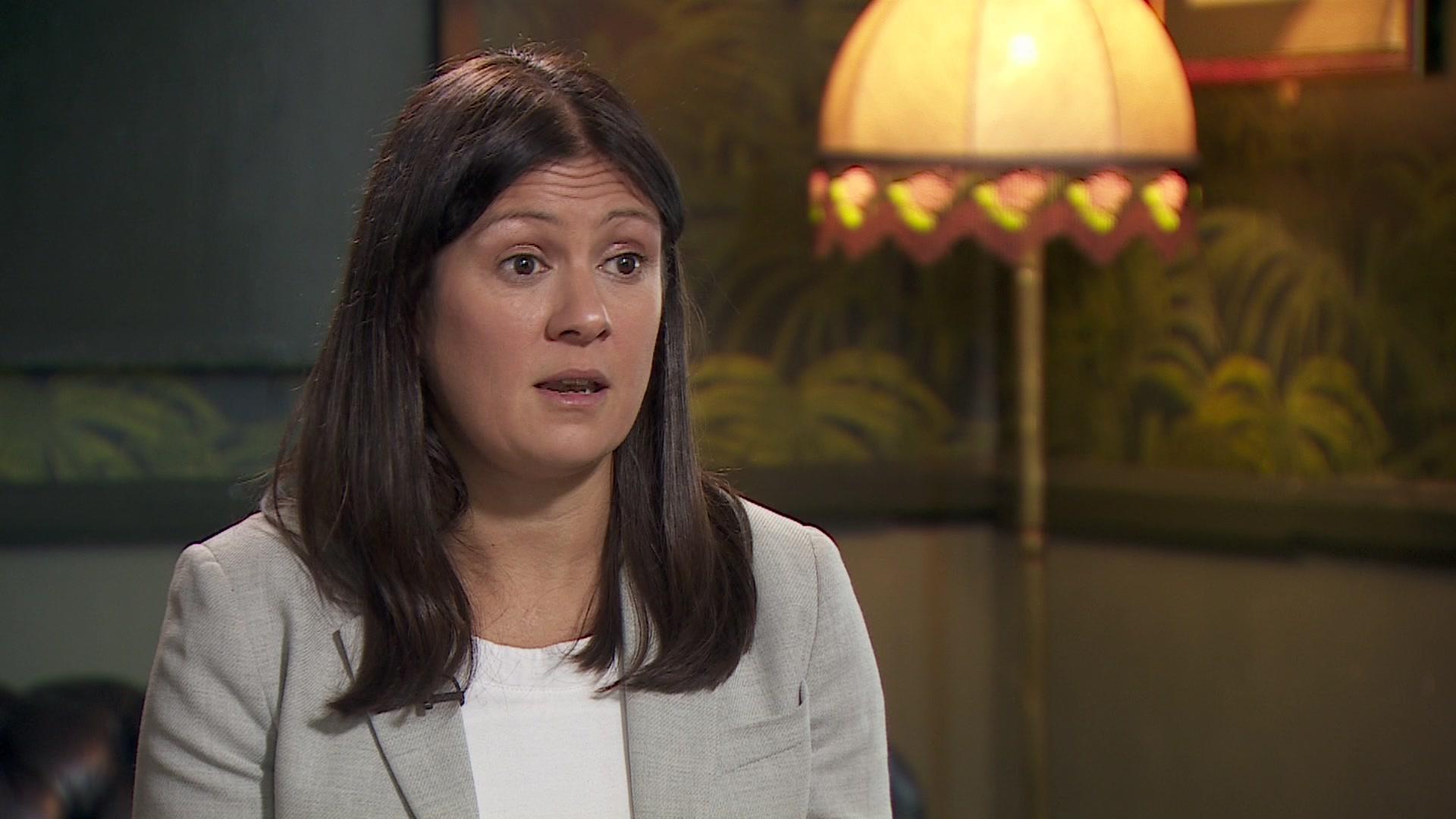Labour leadership: Nandy's not holding back over what's at stake
- Published

At the very start of the Labour leadership race, it wasn't at all certain that Lisa Nandy would get very far at all.
Her team felt more like a collection of old friends trying their best to cobble a campaign together because they believed in their cause, and to have a good time doing it.
But in the last 10 weeks she has attracted more attention and picked up more support than she could have been sure of at the start.
Long known in Labour circles as a straightforward politician and an interesting thinker, she has been the most willing to speak out about the mistakes the party made in recent years.
That's been easier for her as she quit the party's leadership team.
The others have tiptoed around what went wrong, in part because they, as members of the shadow cabinet, were part of the group (at least in theory), that made the errors that led to the defeat and also because they have been afraid to trash Jeremy Corbyn's reputation when many members still believe in him and only a couple of months ago were standing on doorsteps, trying to pitch his message.
In our interview with Lisa Nandy she didn't hold back, not just her analysis of how Labour has drifted away from many communities it used to represent, but also on how both sides of the party went into what she describes as a "factional war", where it was "very very clear", that the leadership, not just MPs, unhappy about Mr Corbyn's leadership, wanted, she says, to have the fight until their opponents in the party were "crushed". .
And while she was careful to say that Mr Corbyn was not the politician who vowed to do so at a fraught meeting after the referendum in 2016, she was clear that there was "no point at all in which he contradicted that".
Allies of Mr Corbyn dispute that version of events, suggesting it's nonsense that he wanted a brutal internal fight.
But Lisa Nandy has said publicly what many people have often said privately over the time of the Labour leadership, that Mr Corbyn's team wanted to silence opposition to them, and were more interested in squeezing out their internal enemies than pulling the party together.
The narrative among his loyal supporters has always been to point the finger at the hostile PLP - the Parliamentary Labour Party. It is certainly the case that there were MPs who didn't want to accept his leadership to start with and wanted him gone.
But it is also the case that the leadership had a choice over how to respond to those who wanted to help.
The constant theme of this contest has been about trying to find a way to unite the party. The three remaining candidates have conducted a relatively good-natured campaign.
Lisa Nandy joked that she feels like her rivals Rebecca Long-Bailey and Keir Starmer feel like her "only friends" at the moment as they go round conference centres "shouting slogans at each other".
There are still huge unresolved tensions under the surface in the party. But to become an effective opposition, Labour's next generation have to find a way to make peace.
